EBRA AISBL
The European Business Registry Association, EBRA, is an international non-profit organisation (AISBL: Association internationale sans but lucratif).
Our Vision
“EBRA’s vision for the future is one where the collaboration of a diverse range of registers provides a greater benefit to the operation of all registers than is possible by the individual register. This is achieved through sharing information, best practices, and tools.
Its vision is to continue to foster the global registry domain, facilitate cooperation with its peer fora, and ensure the benefit of membership is clearly recognised by the members”
Mission and Primary Purpose
“EBRA is recognised as the leading association for business registry and related domains. We provide best practice, collaborative platforms, and domain knowledge, on the operation and maintenance of registers.”
EBRA is an international community of registers, collaborating on an agreed set of initiatives, which seek to benefit the operation of the individual register, which is a member of EBRA.
It is the mission of the organisation to:
- Represent and provide expert insight from European Business Registry professionals
- Cultivate an environment of innovation and collaborative action between business registries and strategic partners
- Foster collective strategic thinking amongst Business Registry professionals
- Help the business registers to provide the best possible services to their clients
- Be the implementing Business Registry association with the capability to research, develop, manage and operate required initiatives and services
History
The European Business Registry Association (EBRA) was formed in January 2019 through the coalition of the European Business Register (EBR) and the European Commerce Registers’ Forum (ECRF).
EBR started as a technical cooperation between business registers in 1992. Its origin can be found in the provisions of the First Company Law Directive that defines a mandatory list of information that every Member State must register about their companies (Article 2). From its inception EBR has acted in support of business registers, in promoting business transparency, and the European Commission, in advancing the objectives of the single market. The funding of the network is provided by the annual membership fee of the partners.
1992-1998
In 1992, France, Italy, Denmark and the United Kingdom supported the Commission project whose aim was to ensure easy and multilingual access to, at least, a standard set of official company data stored in the business registers of the countries concerned. In our first EBR project in 1994 we supported DG XIII in the European Nervous System Programme (ENS). The pilot project demonstrated the feasibility of an Internet connection between registers.
In 1996-1998 we worked with the DG XIII, Telematics Application Programme by putting in place phase II of the EBR concept development. At the end of the project, we launched the first service on the market, providing access to 12 registers: Austria, Belgium, Denmark, Finland, France, Germany, Greece, Italy, Norway, Spain, Sweden and the UK.
1998-2008
In 2001-2003 we enhanced the IT platform in a third project (European Business Register – Open Network; EBR-ON) in support of the IST Programme. The project eased the integration of new partners and the created of a common user interface to help the launch of the service to the market.
Migration from the old to the new platform and the launch of a new EBR service took place during the summer of 2004 with 14 providers: Austria, Belgium, Denmark, Estonia, Finland, France, Germany, Greece, Ireland, Italy, Latvia, Norway, Spain and Sweden.
Cooperation between the participating registers was based on an Information Sharing Agreement (ISA) in which the contracting parties undertook the duty to give each other access to information stored in the business registers. Gradually, other countries joined the cooperation. In 1998 EBR incorporated as a European Economic Interest Grouping (EEIG).
The adoption of the 2003 amendment of the First Company Law Directive promoted the future use of EBR since it made it mandatory for Member States to set up electronic business registers by 1 January 2007. The completion of the electronic databases opened the possibility for EBR to extend its services to other Member States of the EU.
2008-2016
EBR took a leadership role in the field of interconnection of business registers. We led the BRITE project (Business Registers Interoperability Throughout Europe) for the integration of services such as: the branch disclosure service, the transfer of seat and a central company names index. Arising from that project the EU brought forward a directive to give effect to the principle recommendations and EBR itself upgraded its platform once again.
In 2011/12 EBR participated in the BOWNET project which explored the needs of law enforcement agencies and others in determining the owners of companies. In 2014/15 we coordinated the EBOCS project which established systems to assist law enforcement agencies to access and map business ownership. Having rated the outcome of that project as excellent the Commission requested us to extend it into 2017/18.
ECRF History
The first ECRF initiative to establish a wider and deeper co-operation among the European business registration authorities was taken by the Register of Enterprises of the Republic of Latvia, which invited to Riga European commerce registers to the 1st Annual Conference, in 1998.
This initiative was followed by the 2nd Annual Conference of the European commerce registers, held in Sweden and hosted by the Swedish Companies and Patents Office, in 1999. The conference, which was attended by delegates from 21 European countries (including representatives of some emerging Central and Eastern European economies), offered a chance to participating Registrars to jointly explore common issues and exchange ideas and expertise.
A number of participants expressed the idea that foundations laid by this conference should be built upon by establishing a more formalized mechanism for co-operation among European registries.
Proposals on the issue, prepared by officials of a number of Business Registries, were presented to the 3rd Annual conference of the European commerce registers, held in Cardiff in October 2000, which was participated by 21 countries.
As a result of the said proposals, the organisation for the commerce registers of Europe became the European Commerce Registers’ Forum (ECRF) in Cardiff, in October 2000, when the first ECRF Steering Committee was appointed, comprising representatives from Italy, Norway, Sweden, and United Kingdom. In 2019, ECRF had 33 members.


